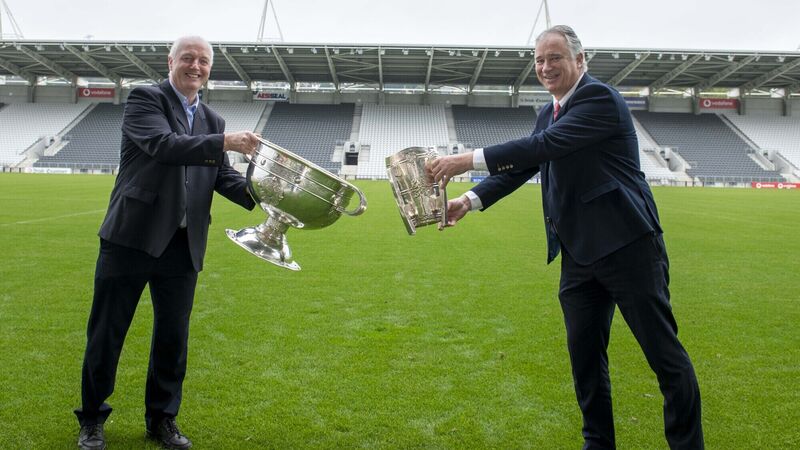Kieran Shannon: Cork’s 1990 double can be equalled but never bettered

Today, Wednesday, September 16, marks the 30th Anniversary of the historic 'Double Senior All Ireland ' Victories of 1990 – when both Cork senior teams made history by capturing both the Liam MacCarthy and Sam Maguire trophies. Pictured at Pairc Uí Chaoimh swapping the famous trophies are captains Tomás Mulcahy (hurling captain, on right) and Larry Tompkins (football captain). Picture: Brian Lougheed
Thirty years on and the noise that rang around Croke Park that day still echoes in the mind.
Every All-Ireland triumph is greeted with an outpouring of delight but there is a scale in such matters, normally dictated by how long it was since a county last went up the steps of the Hogan and their margin of victory on the day.








